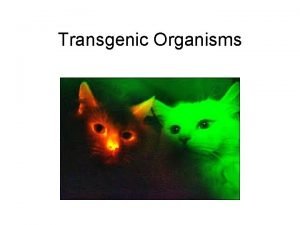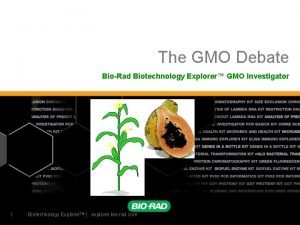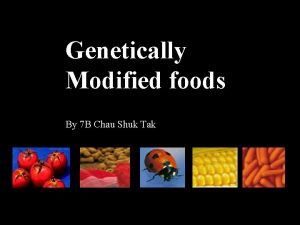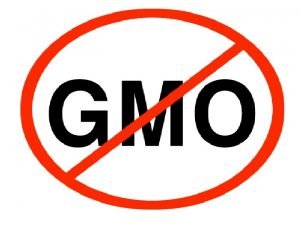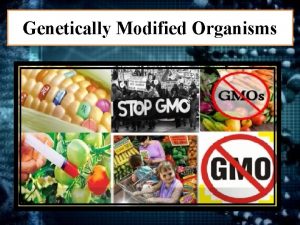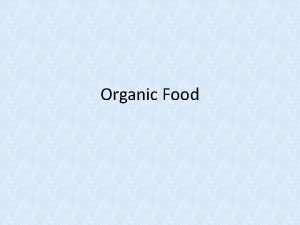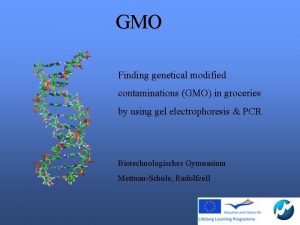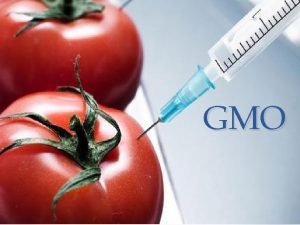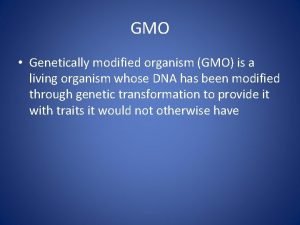CONVENTIONAL V ORGANIC AND LOCAL FOOD Conventional GMO









- Slides: 9

CONVENTIONAL V. ORGANIC AND LOCAL FOOD

Conventional (GMO) Methods re: Sustainability (DQ 1) • Promote food security by adapting seeds • Very few never adapted • Green Revolution due to GMOs • 2 nd Rev. will help poorer farmers • Req. less land • ↑ Resistant to diseases, etc. • Need fewer ag. inputs • Increases efficiency • No known ill health effects • GMOs more regulated ¤

Main Contributors to Organics Movement (DQ 2) • Distrust of MNCs • Not transparent • Exploit GS • Human health • Consumers • Workers • Environmental • Super weeds, pest problems • Mono-cropping • Product of political culture ¤

A Waste of Money? (DQ 3) • Same reasons for anti-GMO mvt. • Benefits farmers, workers, but on very small scale • Not necessarily better for the environment • Cost tradeoff- Americans don’t get enough produce • ‘Natural’ can also be deadly • Diff. variables can affect nutritional values of crops • Inconsistent evidence, reporting of benefits ¤

Food Diversity (DQ 4) • Local cuts off small farmers • Reliance on few crops problematic • Increases plant vulnerability • Need more ag. inputs • Ship globally • GS too reliant on imports over local crops ¤

Local Concerns (DQ 5) • Large-scale production • Critical of MNCs • Want natural products • Push eating locally • Local esp. like early ATO FT • Commodity fetishism • Push slow food movement, local diet • Food security • Don’t see global implications ¤

Problems Organic, Local Face (DQ 5, cont. ) • Would req. radical dietary changes • Most products not truly local • Local/organic ≠ sustainable • Not viable on large-scale • Mass production more efficient • GMOs more often productive • Organic ≠ natural, non-toxic, or safer • Bigger problem in U. S. - inadequate intake of produce • Contribute to commodity fetishism • Tied to social status • Disadvantages poor’s food security • In GN who can’t afford produce, let alone organic • In GS, farmers who dependent on ag exports ¤

Recap • Conventional • Gl. food security • Less land, better yields, few ag. inputs, etc. • Expose workers • Monocropping • Organic • Own health concerns • Requires ↑ resources for ↓ yields • Lack evidence that it’s better • Bottom line- organic can’t feed population ¤

Recap (cont. ) • Local food • GN-severely limit diets; discriminates against GN, GS poor • GS-diets more local, but still rely on imports • Could promote food diversity in GS • ¤


